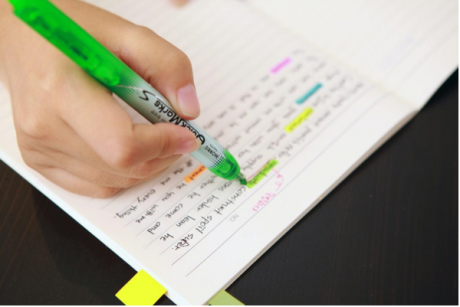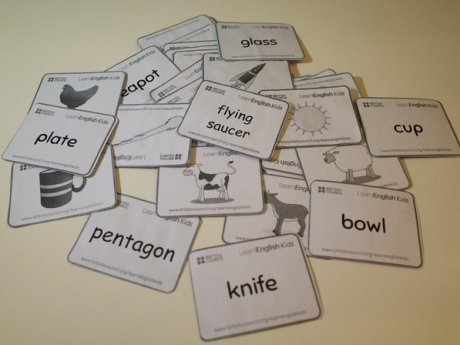How to Ace Your Exams: Tips from the Pros

- Make a study schedule and stick to it
Making a study schedule and sticking to it is key to academic success. When you know what you’re going to be doing each day, hour by hour, it becomes much easier to focus on your work and get things done. Having a plan also helps prevent procrastination, because you know exactly what you need to do to meet your goals. So if you’re looking for ways to raise your grades, start by creating a study schedule and sticking to it!
CrunchGrade tutors offer you excellent tips on how to make a good study plan as a school student:
- Set a realistic goal for each study session. For example, if you have a one-hour study period, aim to complete two pages of reading or do 30 minutes of practice problems.
- Write down what you need to accomplish in each study session. This will help hold you accountable and ensure that you’re making progress.
- Stick to a regular schedule. It’s important to be consistent with your study habits. Try to study at the same time each day, and for the same duration of periods.
- Take breaks. Breaks are essential to focus and concentration. Make sure to step away from your work every 20 minutes or so to give your mind a rest.
- Create a positive study environment. Choose a place to study that is comfortable and free of distractions. This will help you stay focused on your work.
2. Ask questions in class and take good notes

Asking questions helps us learn, and taking good notes helps us remember what we learn. When you have something important to say in class, don’t be afraid to raise your hand and share it with the rest of the class. But also make sure you are listening when other people are talking, so you can take good notes. By doing both of these things, you’ll be well prepared for whatever the teacher throws your way.
The best way to make notes is:
- to focus on the main points of the lecture;
- to use short sentences and keywords;
- to include diagrams, illustrations, and examples;
- use colorful highlighters to draw attention to important information; and
- to create a system that works for you, so you can easily find and understand your notes later.
3. Review your notes regularly
Are you one of those students who take notes in class and then never look at them again? If so, you’re doing yourself a disservice. It’s important to review your notes regularly so that you can remember the information that was covered in class. Not only will this help you do better on tests, but it will also help you retain the information for longer. So make sure to review your notes every day – even if it’s just for a few minutes. You’ll be surprised at how much difference it makes!
Experts suggest the following techniques to review notes:
- Read your notes out loud. This will help engage your auditory and visual senses, making it easier to remember the information.
- Write summaries of your notes. This will force you to condense the information into a more manageable form, which will make it easier to remember later on.
- Practice retrieval. Retrieval practice is a proven method for improving memory and recall. To do this, simply try to remember the information from your notes without looking at them. Then, check your work to see how well you did.
- Discuss your notes with someone else. This will help you identify any gaps in your understanding, and it will also force you to explain the information in your own words.
4. Create flashcards to help you learn key concepts and terms

Creating flashcards is a tried and true way to help you learn key concepts and terms for any class. By writing the definition of each term on one side of a card, and then creating questions about what you don’t understand about the term on the other side, you can really drill down into what you need to know. Plus, it’s easy to carry your flashcards with you wherever you go!
CrunchGrade online tutors suggest the following tools to create flashcards:
- Quizlet: This website allows you to create digital flashcards that you can access on your computer, phone, or tablet.
- Anki: This is a flashcard app that uses spaced repetition to help you learn and remember information more effectively.
- Physical flashcards: You can also just use good old-fashioned paper and pen to create your flashcards. This can be a good option if you prefer to have a physical copy that you can hold in your hand.
5. Take practice quizzes and exams to assess your strengths and weaknesses
Do you spend hours studying and still not do well on your exams? Many students believe that if they study hard, they should get good grades. However, that is not always the case. It is important to know your strengths and weaknesses so you can focus your studying on the topics you need more help with. Testing yourself with practice quizzes and exams is a great way to assess what you know and don’t know. This will help you improve your grades significantly!
We offer practice exams and quizzes based on your grade and school curriculum. We also offer detailed feedback and recommendation that includes:
The topics you need to focus on;
- The type of questions you tend to miss; and
- Strategies to improve your performance.
6. Understand the test format and question types
Before you take a test, it’s important to understand the question types and format. This way, you know what to expect and can prepare accordingly. You should know the different types of questions you may encounter on a test and how to approach them. This information helps you achieve your best score!
The best way to understand the test format and types of questions asked in the exam is to go through the exam syllabus. It is essential to be aware of the topics that will be covered in the test. You should also solve previous years’ question papers to get an idea of the type of questions asked in the exam.
The format of the questions asked in an exam can vary depending on the type of test. Some common question types are:
- Multiple choice: These questions have one correct answer and several incorrect answers. You need to select the correct answer from the given options.
- True or false: As the name suggests, you need to choose whether the statement is true or false.
- Fill in the blanks: In these questions, you need to write the missing word or phrase to complete the sentence.
- Match the following: In these questions, you need to match the items in one column with the items in another column.
- Subjective questions: In school, you may be asked to write essays or solve math problems. These are called subjective questions, and there is no one correct answer. Your teacher will grade your answer based on how well you have explained or solved the problem.
7. Understand what is being asked of you

When you are studying for an exam, it is important to understand what is being asked of you in the question. This means reading the questions thoroughly and not rushing through them. If you don’t understand what is being asked, you won’t be able to answer the question accurately. Take your time and read each question carefully so that you can get the most out of your study session!
You can decode a question by breaking it down into smaller parts. For example, if you are solving a math problem, you can read the question and identify the following:
- The given information;
- What is being asked;
- The type of problem it is; and
- The steps you need to take to solve the problem.
Some of the keywords in a question that determine the way you need to answer it include:
- Define: You need to give the meaning of the term.
- Explain: You need to provide a detailed description of the concept.
- Describe: You need to give a brief overview of the topic.
- Compare: You need to find the similarities and differences between two things.
- Contrast: You need to find the differences between two things.
- Analyze: You need to break down the concept and understand its individual parts.
- Evaluate: You need to give your opinion on the given topic.
- Justify: You need to provide a reason for your opinion.
8. Practice answering questions under timed conditions
In other words, work on your speed! When you know that you only have a few minutes to answer a question, it will force you to focus and think quickly. And the more practice you get, the better off you’ll be. So next time you’re studying for an exam or preparing for a test, make sure to set aside some time for timed drills of solving full-length examination papers.
While solving an examination paper in a set time, you need to keep the following things in mind:
- Read the question carefully and understand what is being asked.
- Don’t spend too much time on a single question. If you can’t answer it, move on to the next one and come back later.
- Answer all the questions, even if you have to guess. There is no negative marking for wrong answers in most exams.
- Check your answers at the end to see if you have made any mistakes.
9. Don’t cram at the last minute – spread out your studying over several weeks or months

Cramming for exams might seem like the best way to get all the studying done in a short period, but it’s actually not the best way to learn. If you spread out your studying over several weeks, you’ll likely remember more of what you studied and perform better on your exams.
A scientific study says that you should study for about an hour each day for three months before your exams. This means that you should start studying early and not leave everything till the last minute.
When you study regularly, you have time to:
- Understand the concepts;
- Work on practice questions;
- Review your progress; and
- Make adjustments to your studying plan.
10. Take care of yourself – eat well, get enough sleep, and exercise
School can be tough. It’s a lot of work, and it’s easy to forget to take care of yourself. But it’s important to eat well, get enough sleep, and exercise. Here are three reasons why:
- Eating well gives you the energy you need to make it through the day.
- Getting enough sleep helps your brain function better so you can focus in class.
- Exercising makes you feel good both physically and mentally, which can help you stay motivated during schoolwork.
Kindergarten students need to sleep for about 11-13 hours each day. For elementary school students, the range is 10-12 hours. And for middle and high school students, it’s 9-10 hours.
It can be tough to get all the sleep you need during the week, so make sure to catch up on weekends. Also, try to avoid staying up late at night to study or do homework. It’s better to get a good night’s sleep and wake up early to get your work done.
11. Stay calm and positive on test day
On test day, it’s crucial to keep a positive attitude. Staying positive will help you focus on the task at hand. Being upbeat also gives you energy and stamina throughout the test. Finally, remaining calm and confident can actually raise your score!
Try these tips to stay positive on test day–you’ll be glad you did:
- Get a good night’s sleep before the test.
- Eat a nutritious breakfast on test day.
- Arrive at the testing centre early so you can relax and review your material one last time.
- During the test, take a few deep breaths and remind yourself that you know the material.
- If you start to feel overwhelmed, take a break and come back to the question later.
- When you’re finished, don’t dwell on the questions you missed–focus on the ones you got right.
If you need help with acing your exams, CrunchGrade online tutors can assist you. Our tutors are experts in their field and can provide you with the personalized attention you need to succeed. Contact us today to learn more!
